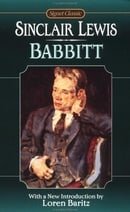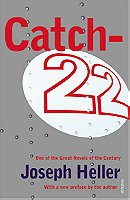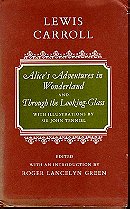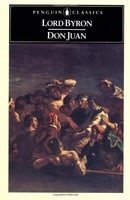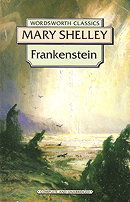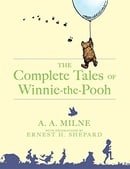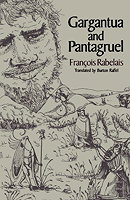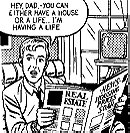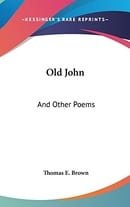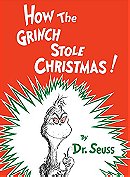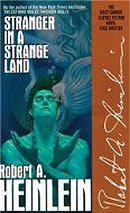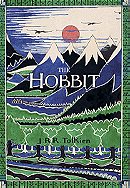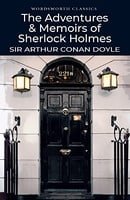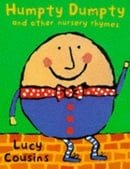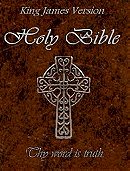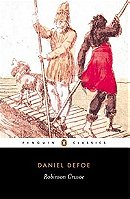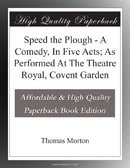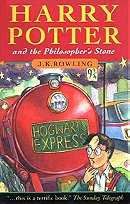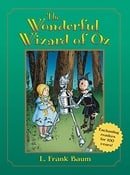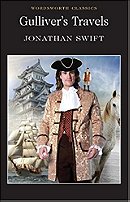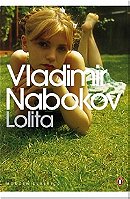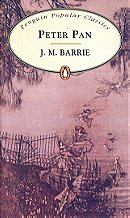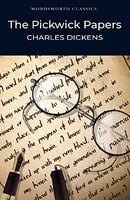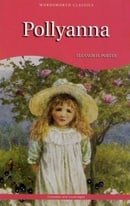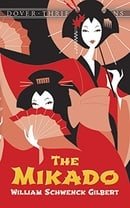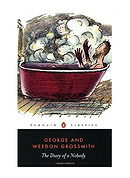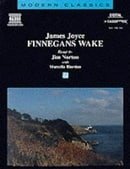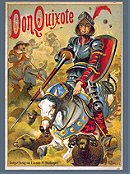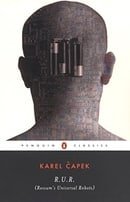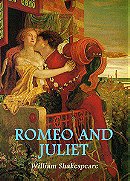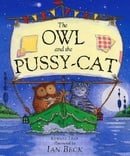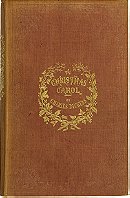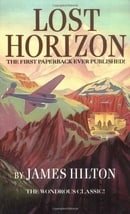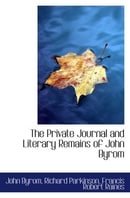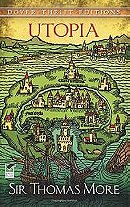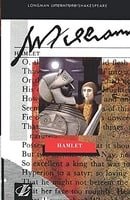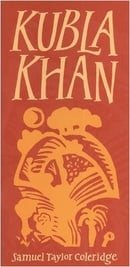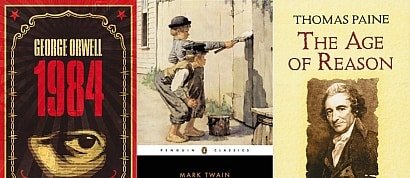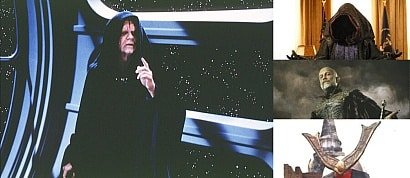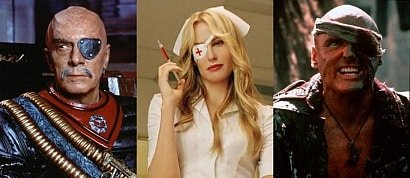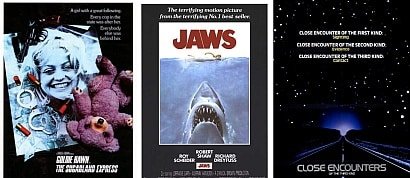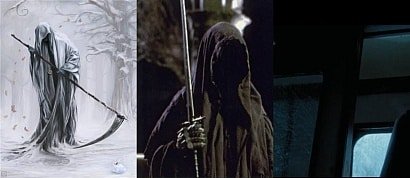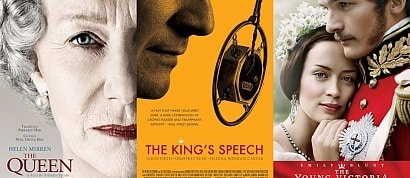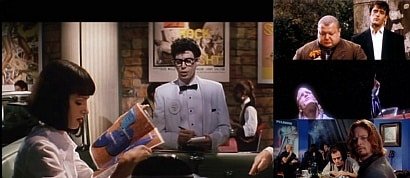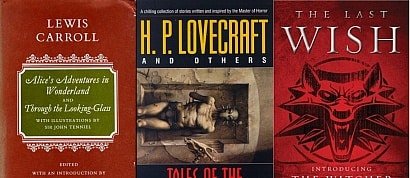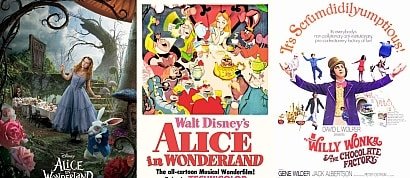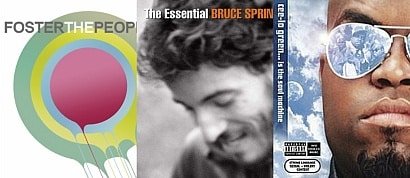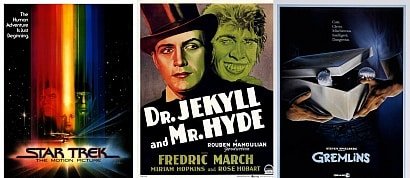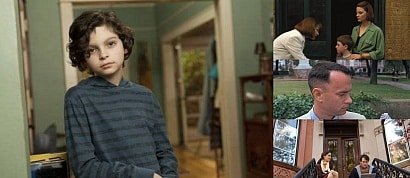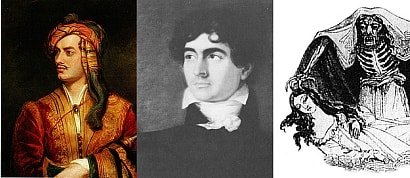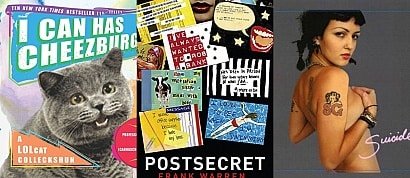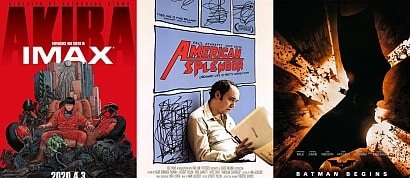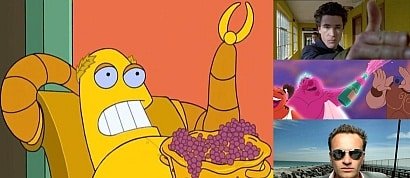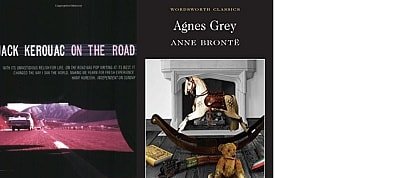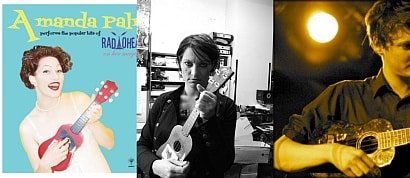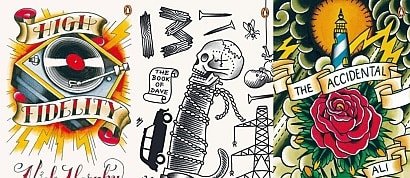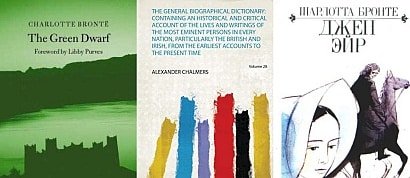When Literature Creates Language
Sort by:
Showing 42 items
Rating:
List Type:
1984 Nineteen Eighty-Four - George Orwell
Big Brother n. informal a person or organisation exercising total control over people's lives.
-ORIGIN 1950s: from the name of the head of state in George Orwell's Nineteen Eighty-Four (1949).
doublethink n. the acceptance of conflicting opinions or beliefs at the same time.
-ORIGIN 1949: coined by George Orwell in his novel Nineteen Eighty-Four.
newspeak n. ambiguous euphemistic language used chiefly in political propaganda.
-ORIGIN 1949: an artificial official language in George Orwell's Nineteen Eighty-Four.
-ORIGIN 1950s: from the name of the head of state in George Orwell's Nineteen Eighty-Four (1949).
doublethink n. the acceptance of conflicting opinions or beliefs at the same time.
-ORIGIN 1949: coined by George Orwell in his novel Nineteen Eighty-Four.
newspeak n. ambiguous euphemistic language used chiefly in political propaganda.
-ORIGIN 1949: an artificial official language in George Orwell's Nineteen Eighty-Four.
tartan_skirt's rating:


Babbitt (Signet Classics) - Sinclair Lewis
Babbitt n. dated, chiefly N. Amer. a materialistic, complacent, and conformist businessman.
-DERIVATIVES Babbittry n.
-ORIGIN 1922: from George Babbitt, the protagonist of the novel Babbit by Sinclair Lewis.
-DERIVATIVES Babbittry n.
-ORIGIN 1922: from George Babbitt, the protagonist of the novel Babbit by Sinclair Lewis.
Pick of "Punch" - David [ed.] Thomas
brunch n. a late morning meal eaten instead of breakfast and lunch.
(Featured in Punch on August 1st, 1896. Editor Guy Beringer is credited with the creation of the word.)
(Featured in Punch on August 1st, 1896. Editor Guy Beringer is credited with the creation of the word.)
Catch-22 - Joseph Heller
catch-22 n. a difficult situation from which there is no escape because it involves mutually conflicting or dependent conditions.
-ORIGIN title of a novel by Joseph Heller (1961).
-ORIGIN title of a novel by Joseph Heller (1961).
Alice's Adventures in Wonderland - Lewis Carroll
chortle v. laugh in a gleeful way. n. a gleeful laugh.
-ORIGIN 1871: coined by Lewis Carroll in Through the Looking Glass; prob a blend of CHUCKLE and SNORT
frabjous adj. humorous delightful; joyous.
-DERIVATIVES frabjously adv.
-ORIGIN 1871: coined by Lewis Carroll, apparently to suggest fair and joyous.
galumph v. informal move in a clumsy, ponderous, or noisy manner.
-DERIVATIVES galumphing adj.
-ORIGIN 1871 (in the sense 'prance in triumph'): coined by Lewis Carroll in Through the Looking Glass; perhaps a blend of GALLOP and TRIUMPH.
jabberwocky n. (pl. jabberwokies) invented or meaningless language.
-ORIGIN early 20th cent.: from the title of a nonsense poem in Lewis Caroll's Through the Looking Glass (1871).
mimsy adj. rather feeble and prim or over-restrained.
-ORIGIN 1871: nonsense word coined by Lewis Carroll; a blend of MISERABLE and FLIMSY.
-ORIGIN 1871: coined by Lewis Carroll in Through the Looking Glass; prob a blend of CHUCKLE and SNORT
frabjous adj. humorous delightful; joyous.
-DERIVATIVES frabjously adv.
-ORIGIN 1871: coined by Lewis Carroll, apparently to suggest fair and joyous.
galumph v. informal move in a clumsy, ponderous, or noisy manner.
-DERIVATIVES galumphing adj.
-ORIGIN 1871 (in the sense 'prance in triumph'): coined by Lewis Carroll in Through the Looking Glass; perhaps a blend of GALLOP and TRIUMPH.
jabberwocky n. (pl. jabberwokies) invented or meaningless language.
-ORIGIN early 20th cent.: from the title of a nonsense poem in Lewis Caroll's Through the Looking Glass (1871).
mimsy adj. rather feeble and prim or over-restrained.
-ORIGIN 1871: nonsense word coined by Lewis Carroll; a blend of MISERABLE and FLIMSY.
diddle v. informal 1 to cheat or swindle. 2 N. Amer. waste time. 3 vulgar, slang, chiefly N. Amer. have sex with.
-DERIVATIVES Diddler n.
-ORIGIN C19: prob. from the name of Jeremy Diddler, a character in the farce Raising the Wind (1803) who constantly borrowed small sums of money.
-DERIVATIVES Diddler n.
-ORIGIN C19: prob. from the name of Jeremy Diddler, a character in the farce Raising the Wind (1803) who constantly borrowed small sums of money.
Don Juan - Lord George Gordon Byron
Don Juan n. a seducer of women.
-ORIGIN C19: from the name of a legendary Spanish nobleman and libertine.
-ORIGIN C19: from the name of a legendary Spanish nobleman and libertine.
Frankenstein (Wordsworth Classics): Or, the Modern Prometheus... - Mary Wollstonecraft Shelley
Frankenstein (also Frankenstein's monster) n. a thing that becomes terrifying or destructive to its maker.
-ORIGIN from the title of a novel (1818) by Mary Shelley, whose eponymous main character creates a manlike monster which eventually destroys him.
-ORIGIN from the title of a novel (1818) by Mary Shelley, whose eponymous main character creates a manlike monster which eventually destroys him.
tartan_skirt's rating:


The Complete Tales of Winnie-the-Pooh - A. A. Milne
Eeyorish (also Eeoreish) adj. pessimistic or gloomy.
-ORIGIN from Eeyore, a gloomy donkey in A. A. Milne's Winnie-the-Pooh.
Tiggerish adj. Brit very lively, energetic, and cheerful.
-ORIGIN from Tigger, a tiger in A. A. Milne's Winnie-the-Pooh, characterized by his vitality.
-ORIGIN from Eeyore, a gloomy donkey in A. A. Milne's Winnie-the-Pooh.
Tiggerish adj. Brit very lively, energetic, and cheerful.
-ORIGIN from Tigger, a tiger in A. A. Milne's Winnie-the-Pooh, characterized by his vitality.
Gargantua and Pantagruel - François Rabelais
gargantuan adj. extremely large.
-ORIGIN C16: from Gargantua, a voracious giant in Rabelais' book of the same name, + an.
-ORIGIN C16: from Gargantua, a voracious giant in Rabelais' book of the same name, + an.
Generation X: Tales for an Accelerated Culture... - Douglas Coupland
Generation X n. the generation born between the mid 1960s and the mid 1970s, perceived as being disaffected and directionless.
-DERIVATIVES Generation Xer
-ORIGIN from the novel of the same name (1991) by Douglas Coupland.
-DERIVATIVES Generation Xer
-ORIGIN from the novel of the same name (1991) by Douglas Coupland.
tartan_skirt's rating:


Old John: And Other Poems - Thomas E. Brown
Godwottery n. Brit. humorous affectedly archaic or elaborate speech or writing.
-ORIGIN 1930s: from the line 'A garden is a lovesome thing, God wot!', in T. E. Brown's poem My Garden (1876).
-ORIGIN 1930s: from the line 'A garden is a lovesome thing, God wot!', in T. E. Brown's poem My Garden (1876).
How The Grinch Stole Christmas! - Dr Seuss
Grinch n. N. Amer. informal a spoilsport or killjoy.
-ORIGIN 1970s: a character in the children's story How the Grinch Stole Christmas by Dr. Suess.
-ORIGIN 1970s: a character in the children's story How the Grinch Stole Christmas by Dr. Suess.
Stranger in a Strange Land (Remembering Tomorrow)... - Robert A. Heinlein
grok v. (groks, grokking, grokked) US informal understand intuuitively.
-ORIGIN 1960s: invented word.
(check required)
-ORIGIN 1960s: invented word.
(check required)
The Hobbit - J.R.R. Tolkien
hobbit n. a member of an imaginary race similar to humans, of small size and with hairy feet, in stories by J. R. R. Tolkien.
-ORIGIN 1937: invented by Tolkien in his book The Hobbit, and said by him to mean 'hole-dweller'.
-ORIGIN 1937: invented by Tolkien in his book The Hobbit, and said by him to mean 'hole-dweller'.
tartan_skirt's rating:


The Adventures & Memoirs of Sherlock Holmes - Sir Arthur Conan Doyle
Holmesian adj. relating to or reminiscent of the expert detective Sherlock Holmes, a character in stories by Sir Arthur Conan Doyle.
tartan_skirt's rating:


Humpty Dumpty and Other Nursery Rhymes - Lucy Cousins
humpty-dumpty n. (pl. humpty-dumpties) informal 1 short fat person 2 a person or thing that once overthrown cannot be restored.
-ORIGIN C18: from the egg-like nursery-rhyme character Humpty-Dumpty, who fell off a wall and cnould not be put together again.
-ORIGIN C18: from the egg-like nursery-rhyme character Humpty-Dumpty, who fell off a wall and cnould not be put together again.
The Holy Bible: King James Version - Anonymous
Jezebel n. a shameless or immoral woman.
-ORIGIN C16: Jezebel, wife of Ahab in the Bible.
-ORIGIN C16: Jezebel, wife of Ahab in the Bible.
Robinson Crusoe (Penguin Classics) - Daniel Defoe
man Friday n. a male helper or follower.
-ORIGIN from Friday, the name of a character in Defoe's novel Robinson Crusoe (1719), whom Crusoe often refers to as 'my man Friday'.
-ORIGIN from Friday, the name of a character in Defoe's novel Robinson Crusoe (1719), whom Crusoe often refers to as 'my man Friday'.
The best of H.T. Webster: a memorial collection... - Harold Tucker Webster
Milquetoast n. chiefly N. Amer. a person who is timid or submissive.
-ORIGIN 1930s: from the name of a cartoon character, Caspar Milquetoast, created by H. T. Webster in 1924.
-ORIGIN 1930s: from the name of a cartoon character, Caspar Milquetoast, created by H. T. Webster in 1924.
Mrs. Grundy
Harry Potter and the Philosophers Stone - J K Rowling
muggle n. a person without magical powers
(new meaning: 1996; popularized by J. K. Rowling in Harry Potter and the Philospher's Stone. There are, however, two preceding meanings already in the dictionary.)
(new meaning: 1996; popularized by J. K. Rowling in Harry Potter and the Philospher's Stone. There are, however, two preceding meanings already in the dictionary.)
The Wonderful Wizard of Oz (Oz, Book 1) - L. Frank Baum
Land of Oz n. an unreal or magical place.
-ORIGIN a mythical and magical place, first introduced in the children's novel The Wonderful Wizard of Oz (1900) by L. Frank Baum (1856-1919). The legend that Baum came up with the name when he saw a filing cabinet drawer labeled O-Z (below the drawers A-G and H-N) is disputed.
-ORIGIN a mythical and magical place, first introduced in the children's novel The Wonderful Wizard of Oz (1900) by L. Frank Baum (1856-1919). The legend that Baum came up with the name when he saw a filing cabinet drawer labeled O-Z (below the drawers A-G and H-N) is disputed.
Gulliver's Travels (Wordsworth Classics) - Jonathan Swift
lilliputian adj. trivial or very small. n. a Lilliputian person or thing.
-ORIGIN C18: from the imaginary country of Lilliput in Jonathan Swift's Gulliver's Travels (1726), inhabited by 6-inch high people, +ian
-ORIGIN C18: from the imaginary country of Lilliput in Jonathan Swift's Gulliver's Travels (1726), inhabited by 6-inch high people, +ian
Lolita (Penguin Classics) - Vladimir Nabokov
Lolita n. a sexually precocious young girl.
-ORIGIN from the eponymous character in the novel Lolita (1958) by Vladimir Nabokov.
-ORIGIN from the eponymous character in the novel Lolita (1958) by Vladimir Nabokov.
tartan_skirt's rating:


Peter Pan - J. M. Barrie
Peter Pan n. a person who retains youthful features, or who is immature.
-ORIGIN the hero of J. M. Barrie's play of the same name (1904).
Wendy house n. Brit. a toy house large enough for children to play in.
-ORIGIN named after the house built around Wendy in J. M. Barry's play Peter Pan.
-ORIGIN the hero of J. M. Barrie's play of the same name (1904).
Wendy house n. Brit. a toy house large enough for children to play in.
-ORIGIN named after the house built around Wendy in J. M. Barry's play Peter Pan.
The Pickwick Papers (Wordsworth Classics) - Charles Dickens
Pickwickian adj. of or like Mr Pickwick in Dickens's Pickick Papers, especially in being jovial, plump, or generous. (of words) misunderstood or misused, especially to avoid offence.
Pollyanna (Wordsworth Children's Classics) - Eleanor H. Porter
Pollyanna n. an excessively cheerful or optimistic person.
-DERIVATIVES Pollyannaish adj. Pollyannaism n.
-ORIGIN the name of the optimistic heroine created by the American author Eleanor H. Porter (1868-1920).
-DERIVATIVES Pollyannaish adj. Pollyannaism n.
-ORIGIN the name of the optimistic heroine created by the American author Eleanor H. Porter (1868-1920).
The Mikado (Dover Thrift) - W.S. Gilbert
pooh-bah n. a pompous person having much influence or holding many offices simultaneously.
-ORIGIN from the name of a character in W.S. Gilbert's The Mikado (1885).
-ORIGIN from the name of a character in W.S. Gilbert's The Mikado (1885).
The Diary of a Nobody - Weedon Grossmith,George Grossmith
Pooterish adj. self-important and mundane or narrow-minded.
-ORIGIN 1960s: from the name of Charles Pooter the central character of Diary of a Nobody (1892) by George and Weedon Grossmith.
-ORIGIN 1960s: from the name of Charles Pooter the central character of Diary of a Nobody (1892) by George and Weedon Grossmith.
Finnegans Wake - James Joyce
quark n. Physics any of a group of subatomic particles carrying a fractional electric charge, postulated as building blocks of the hadrons.
-ORIGIN 1960s: invented by the American physicist Murray Gell-Mann and assoc. with the line 'Three quarks for Muster Mark' in Joyce's Finnegans Wake (1939).
-ORIGIN 1960s: invented by the American physicist Murray Gell-Mann and assoc. with the line 'Three quarks for Muster Mark' in Joyce's Finnegans Wake (1939).
Don Quixote - Miguel de Cervantes Saavedra
quixotic adj. impractically idealistic or fanciful.
-DERIVATIVES quixotically adv. quixotism n. quixotry n.
-ORIGIN C18: from the name of Don Quixote, the hero of a chivalric romance by the Spanish writer Cervantes (1547-1616), +ic.
-DERIVATIVES quixotically adv. quixotism n. quixotry n.
-ORIGIN C18: from the name of Don Quixote, the hero of a chivalric romance by the Spanish writer Cervantes (1547-1616), +ic.
R.U.R. (Rossum's Universal Robots) (Penguin Classics)... - Karel Capek
robot n. a machine capable of carrying out a complex series of actions automatically, especially one programmable by a computer.
-DERIVATIVES robotization or robotisation n. robotize or robotise v.
-ORIGIN from Czech, from robota 'forced labour'; the term was coined in K. Čapek's play R. U. R. 'Rossum's Universal Robots' (1920).
-DERIVATIVES robotization or robotisation n. robotize or robotise v.
-ORIGIN from Czech, from robota 'forced labour'; the term was coined in K. Čapek's play R. U. R. 'Rossum's Universal Robots' (1920).
Romeo and Juliet - William Shakespeare
Romeo n. 1 (pl. Romeos) an attractive, passionate male seducer or lover. 2 a code word representing the letter R, used in radio communication.
-ORIGIN the hero of Shakespeare's romantic tragedy Romeo and Juliet.
-ORIGIN the hero of Shakespeare's romantic tragedy Romeo and Juliet.
The Owl And The Pussycat - Ian Beck
runcible spoon n. a fork curved like a spoon, with three broad prongs, one of which has a sharpened outer edge for cutting.
-ORIGIN C19: used by Edward Lear, perh. suggested by later C16 rouncival, denoting a learge variety of pea.
-ORIGIN C19: used by Edward Lear, perh. suggested by later C16 rouncival, denoting a learge variety of pea.
A Christmas Carol - Charles Dickens
Scrooge n. a person who is mean with money.
-ORIGIN from the name of Ebenezer Scrooge, a miser in Charles Dicken's novel A Christmas Carol.
-ORIGIN from the name of Ebenezer Scrooge, a miser in Charles Dicken's novel A Christmas Carol.
Lost Horizon - James Hilton
Shangri-La n. an imaginary earthly paradise.
-ORIGIN the name of a Tibetan utopia in James Hilton's Lost Horizon (1933), from Shangri (an invented name) + Tibetan la ' mountain pass'.
-ORIGIN the name of a Tibetan utopia in James Hilton's Lost Horizon (1933), from Shangri (an invented name) + Tibetan la ' mountain pass'.
Trilby (Oxford World's Classics) - George Du Maurier
Svengali n. a person who exercises a controlling influence on another, especially for a sinister purpose.
-ORIGIN Svengali, a musician in George du Maurier's novel Trilby (1894) who controls Trilby's stage singing hypnotically.
-ORIGIN Svengali, a musician in George du Maurier's novel Trilby (1894) who controls Trilby's stage singing hypnotically.
Tweedledum and Tweedledee n. a pair of people or things that are virtually indistinguishable.
-ORIGIN orig. names applied to Bononcini and Handel, in a 1725 satire by John Byrom; later used for two identical characters in Lewis Carroll's Through the Looking Glass (1871).
-ORIGIN orig. names applied to Bononcini and Handel, in a 1725 satire by John Byrom; later used for two identical characters in Lewis Carroll's Through the Looking Glass (1871).
Utopia - Sir Thomas More
Utopia n. an imagined perfect place or state of things.
-ORIGIN the title of a book (1516) by Sir Thomas More, based on Gk ou 'not' + topos 'place'.
-ORIGIN the title of a book (1516) by Sir Thomas More, based on Gk ou 'not' + topos 'place'.
Hamlet (New Longman Literature 14-18) - Julia Markus,Dr Paul Jordan,Roy Blatchford,William Shakespeare
witching hour n. midnight, regarded as the time when witches are supposedly active.
-ORIGIN with allusion to the witching time of night from Shakespeare's Hamlet (III. ii. 377).
-ORIGIN with allusion to the witching time of night from Shakespeare's Hamlet (III. ii. 377).
tartan_skirt's rating:


Kubla Khan - Samuel Taylor Coleridge
Xanadu n. (pl. Xanadus) an imaginary wonderful place.
-ORIGIN alt. of Shang-tu, an ancient city in SE Mongolia, as portrayed in Coleridge's poem Kubla Khan (1816).
-ORIGIN alt. of Shang-tu, an ancient city in SE Mongolia, as portrayed in Coleridge's poem Kubla Khan (1816).
Sometimes literature has the power to form new words, or feature characters who so strongly represent their features that a word is coined in their honour. Some neologisms make it, others don't. Here are some of the words that made in into everyday language prominently enough to have their own dictionary entry.
Rules: It's got to be in the OED listed as originally coming from the work of literature. I may make some allowances to this in some cases though. I'm currently working from a Concise OED 11th edition revised, so it is a few years old and may not have quite every example possible.
Work in Progress
See Also:
Authors in the Dictionary
Language from Television (under construction)
Rules: It's got to be in the OED listed as originally coming from the work of literature. I may make some allowances to this in some cases though. I'm currently working from a Concise OED 11th edition revised, so it is a few years old and may not have quite every example possible.
Work in Progress
See Also:
Authors in the Dictionary
Language from Television (under construction)
Added to
26 votes
My Favorite Lists - lotr23
(50 lists)list by lotr23
Published 13 years, 3 months ago  8 comments
8 comments
 8 comments
8 comments13 votes
Toast - Favorite Book Lists
(36 lists)list by jaytoast
Published 12 years, 6 months ago  1 comment
1 comment
 1 comment
1 commentPeople who voted for this also voted for
Banned, Burned, Censored
Masters of Malevolence
...the one-eyed man is king.
Spielberg and the absent father
Cloak and Dagger...?
Hall of Shame: Product Placement
One is most amused
Best movies of 1994
All Counties of England
Literature-Inspired Games
Kid's Book Adaptations
Cheery songs that are actually depressing.
Weird artist with face paint!
Autistic characters.
Vampire Fiction
The Internet Goes to Print
25 Comic Book Movies To See Before You Die
Hedonists
Quotes
The Ukulele Revolution
Penguin Ink
Works of the Brontë sisters
 Login
Login
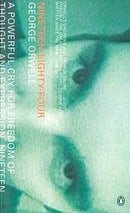
 92
92
 9.1
9.1
 0
0
